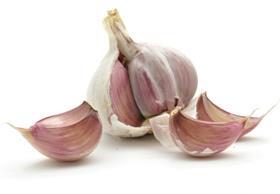
The Indonesian government plans to review its licensing procedures for agricultural imports amid concessions that implementing import quotas may have been a poor decision, particularly in light of the country’s major garlic shortage and price spikes.
“We admit that we might have taken the wrong step in setting the quota for garlic that later led to scarcity and inflation,” said deputy agriculture minister Rusman Heriawan.
The ministry’s decision to cut garlic imports from an annual quota of 390,000 tonnes in 2012 to 320,000 tonnes this year has seen the price of garlic triple from approximately Rp20,000 (US$2.05) per kg in January to Rp60,000 (US$6.16) in March.
In admitting his department’s mistake, Heriawan stated that they intended to study the most suitable import system that could instead be applied on each product to implement future changes.
The minister for trade, Gita Wirjawan, also cited greater transparency and efficiency as driving motivators for overhauling the current system.
“With a new system, we will likely process it online and hopefully, all things can be done in just a few days instead of in weeks or months,” said Wirjawan.
The current system saw inflation pushed up to a 20-month high in February this year. This trend continued in March, which registered a monthly inflation rate of 0.63 percent, elevating annual inflation to 5.9 per cent and exceeding the central bank’s target of 5.5 per cent.
Internationally, it has also sparked contestation from importer countries. The US recently filed a consultation request to the WorldTrade Organisation (WTO) arguing that Indonesia's policies breached the WTO's anti-protectionism rule.



